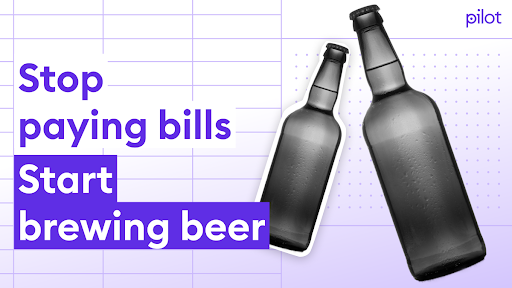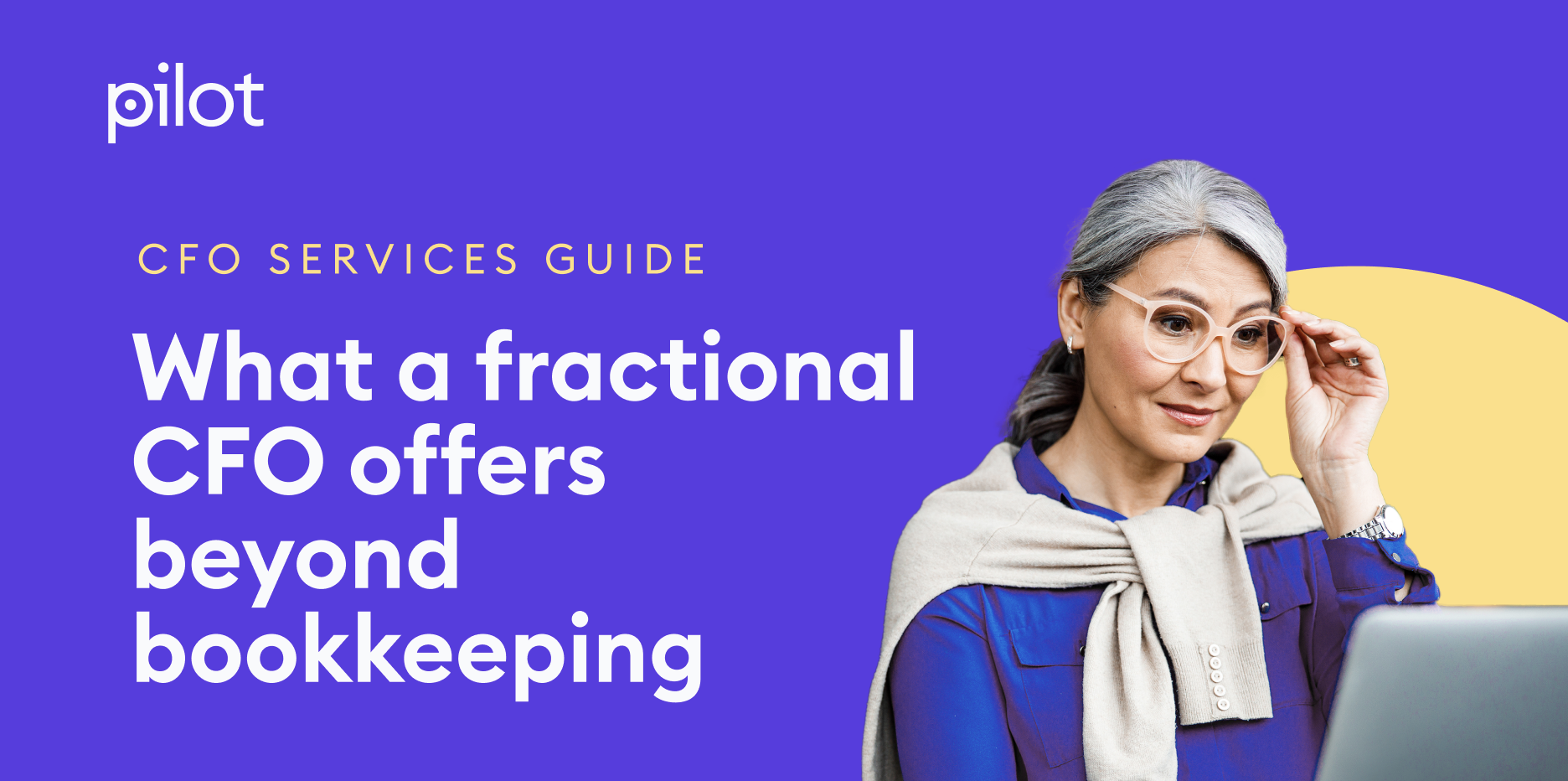CFO vs. controller: What’s the difference?

CFOs and controllers are both important senior roles in a company’s finance organization, helping ensure the business is on solid financial footing and positioned for growth. But what’s the difference between the two roles – and which one does your business need first?
We’ll break down both roles’ responsibilities, how they work together, and how to know what your business needs.
What is a CFO?
The chief financial officer (CFO) is a company’s most senior finance employee, and is ultimately responsible for everything related to the company’s finances. Rather than tackling things hands-on, the CFO will generally oversee the teams and individuals that are responsible for crucial financial operations, such as bookkeeping, tax, and internal controls.
In addition to managing your financial organization, your CFO will offer strategic guidance on your company’s financial goals, including:
- Performance. The CFO will typically take the lead in setting, tracking and analyzing your financial metrics and KPIs.
- Budgeting. The CFO will often create the forecasts used in building your budget, and help craft a budget to support your business and growth goals. At larger companies, the FP&A (Financial Planning and Analysis) team takes the lead on budgeting and reports to the CFO.
- Board decks. Your CFO doesn’t just look at numbers – they examine the story behind the numbers. Most CFOs play a big role in preparing the slides for your board meetings.
- Recommendations for improvement. As head of the finance org, the CFO will likely evaluate key business decisions that have significant financial impact (from pricing to real estate). They’ll also implement financial best practices and work to place the company on the best path to grow in the future.
- Fundraising. Your CFO will help evaluate potential investors and shape the financial narrative your company takes to them.
It’s worth noting that you don’t necessarily need a full-time, in-house CFO to handle these things. Companies who aren’t ready to hire a CFO can use outsourced CFO services to gain access to senior financial expertise, without the large expense of hiring a corporate officer.
What is a Controller?
A controller is also a senior-level member of the finance team. While the CFO is focused on strategy, however, a controller tends to be more focused on directly managing your bookkeeping and reporting functions – technical founders might think of them as the PM writing specs (“accounting policies”) for your accountants. In organizations with both a CFO and a controller, the controller will generally supervise the accounting and financial operations teams, and report into the CFO.
Controllers are typically responsible for the following, whether directly or as managers of the appropriate teams:
- Accounting Policies. The controller will typically be responsible for researching and drafting accounting policies specific to your business, based on FASB guidelines.
- Accounting Statements: Monthly Close Process. The controller will often supervise the bookkeeping team and ensure the company’s books are done according to the accounting policy, and on schedule.
- Financial operations. Processing accounts payable (paying your bills), accounts receivable (collecting from customers), payroll, and similar operational functions will generally report into the controller. These teams do not work on the books, but instead help keep the company humming.
- Internal controls. As companies grow in size and revenue, it becomes increasingly important to have controls and processes in place to ensure an audit trail, and prevent improper spending and internal fraud. The controller will often manage these efforts (at large companies, however, there will usually be a separate internal audit function that reports directly to the board).
- Audit compliance. Besides simply ensuring that the company is following any relevant financial regulations, the controller is usually also responsible for ensuring the company passes any audits.
As with a CFO, you don’t always have to hire in-house to get a controller’s functions. Many companies offer outsourced controller services, including us here at Pilot.
CFO or Controller: Which Do You Need?
Now that we’ve looked at what CFOs and controllers are both responsible for, which one is right for your business?
Keep in mind that the functions we discussed above aren’t mutually exclusive – if it seemed like the two roles can have significant overlap, that’s because they can. At smaller companies, it’s common for a CFO or controller to take on duties that might normally fall under the other role.
When you might need a controller:
- You’re not sure if you’re correctly managing areas like COGS categorization or revenue recognition. Drafting these accounting policies and correcting these types of issues is usually beyond the scope of a bookkeeper, and requires a controller’s senior-level expertise.
- Your finance operations aren’t well developed. Everything from how to classify expenses to how to set up and maintain internal controls can benefit from a controller’s guidance.
- You’re getting audited, or think you might be soon. A controller will assist you throughout the audit process, including creating any requested reports and communicating with the auditors.
When you might need a CFO:
- You need strategic guidance on how to grow. An experienced CFO will help you interpret what’s happening in your business, and offer advice on how to reach your objectives.
- You want to set and track key business metrics such as ARR, AOV, LTV, CAC. A CFO will have the expertise to help you determine which metrics matter most for your business, and to draw meaningful conclusions from your numbers.
- You’re planning to fundraise. There’s more to a successful round than just spreadsheets. A CFO will uncover the story behind your numbers, and help you craft it into a compelling pitch for investors.
- You’re planning an IPO. Taking a company public is a huge, complex undertaking – and once the IPO happens, you’ll be subject to a wide range of new regulations around how your financials are managed. Companies planning to take this step in the next 1-2 years should plan to bring in a CFO with experience in startup IPOs.
Both a controller and a CFO can be expensive hires for a young company – many controller salaries are in the high six figures, while the average CFO makes over $300,000 plus significant equity. If you need the kind of assistance a CFO or controller provides, but can’t justify (or simply don’t have) the budget for a full-time hire, consider engaging with a fractional CFO or a part-time outsourced controller. You’ll get the expertise you need to manage your finances, while keeping your burn rate under control.
In addition to delivering on-time, accurate books, Pilot offers CFO and Controller services to help young companies grow.





